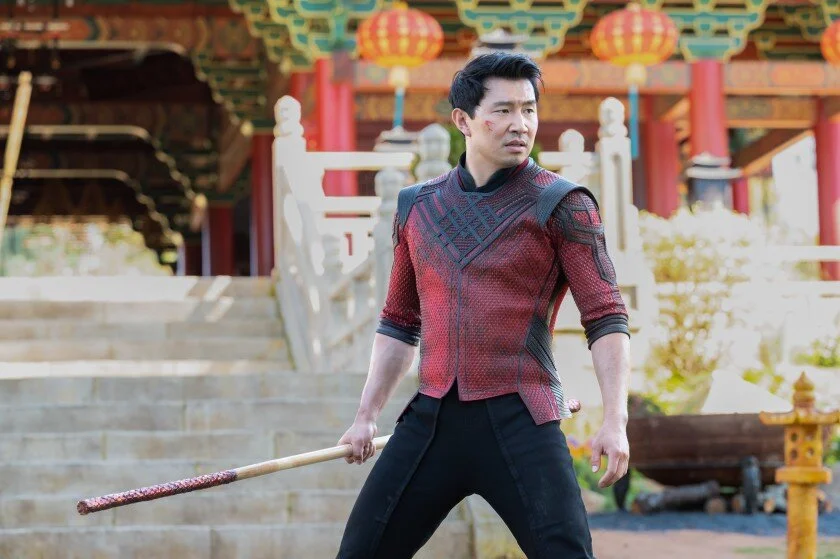Shang-Chi and the Importance of Representation
Disney
While the value of most films are typically measured in box office dollars and Rotten Tomatoes scores, every so often, there’s one that comes along that can’t be measured critically or commercially, but rather culturally.
Black Panther wasn’t just an origin story necessary to continue the larger narrative of the Marvel Cinematic Universe - it came at a necessary time, and it was necessary for Black people, and others, to see Black excellence on the big screen.
A film written (Ryan Coogler, Joe Robert Cole), directed by (Ryan Coogler), and starring (Chadwick Boseman, Michael B. Jordan, Lupita Nyong’o) Black people, fully in control of their own narrative.
Yes, by typical Hollywood standards, it delivered both critically and commercially - but even if it didn’t, it still meant something for Black people culturally, and people of color at large.
It came at a time when the occupant of the White House was a reality show host who famously discriminated against Black people when it came to housing. A man who took out a full-page ad in the Daily News, calling for the death penalty of five young men of color, after they had been exonerated of the crime they were accused of committing. A man who began his political career questioning the birthplace and overall legitimacy of America’s first Black president.
Black Panther was released six months after Charlottesville, when that same man declared there were “very fine people” on both sides of a white supremacist rally.
Now, almost four years later, history has repeated itself in a painfully ironic way.
Shang-Chi and the Legend of the Ten Rings is not just an origin story necessary to continue the larger narrative of the Marvel Cinematic Universe - it comes at a necessary time, and it’s necessary for Asian people, and others, to see Asian excellence on the big screen.
A film written (Dave Callaham, Destin Daniel Cretton), directed by (Destin Daniel Cretton), and starring (Simu Liu, Awkwafina, Tony Leung) Asian people, fully in control of their own narrative.
Yes, by typical Hollywood standards, it delivered both critically and commercially - but even if it didn’t, it still means something for Asian people culturally, and people of color at large.
It comes at a time when Asians are being viciously attacked all over the world. Where hate crimes against Asians have increased in percentage by triple digits. Where reports of such attacks were covered by the mainstream media for a hot two weeks before fading out of public discourse, despite the continuation of said attacks. It comes at a time where Asians are being blamed for the global pandemic we still find ourselves in. It comes at a time where Asians are still heavily stereotyped - both on and off-screen.
If you’re an Asian woman, you’re assumed to be quiet, petite, and submissive, and your only area of expertise is sexual in nature - whether working as a massage therapist providing “happy endings,” or overall being a sex toy for men to use however they see fit.
If you’re an Asian man, you’re assumed to be shy, nerdy, effeminate, and virginal. Where no one is sexualized more than an Asian woman, no one is more desexualized than an Asian man.
Surely, no Asian man could ever be a confident, funny, hunky superhero. And no Asian woman could ever be strong, powerful, and outspoken.
Enter Shang-Chi.
As a comic book film, it ticks all the necessary boxes and then some.
It’s surprisingly funny (the chemistry between Simu Liu and Awkwafina is palpable), the fight sequences are some of the best I’ve ever seen in a film (in particular the fight on the bus), it’s well paced, and the narrative is engaging. The film also seamlessly blends traditional Asian culture with the cultural realities of modern Asian-Americans in a way that’s refreshing and appropriate.
So yes, cinematically speaking - it’s a damn good film. And not just pandemic-good. This film would stand out no matter when it was released.
But anyone not living under a rock knows this film represents much more than just another entry into the MCU.
It’s about representation.
It’s yet another crack in Hollywood’s glass ceiling, which has been dominated by white mediocrity for far too long.
It’s the celebration of a culture often fetishized, perverted, misunderstood, and appropriated - created by the very people who have lived that experience. Simu Liu himself explained this moment better than I ever could.
It’s about people of color being unapologetically themselves and taking up space in ways they previously weren’t allowed to.
I’m not Asian, or Black, but as a Hispanic American, I recognize the importance of inclusion and representation for marginalized people.
It’s why all these films are events: Black Panther, Shang-Chi, Crazy Rich Asians, Wonder Woman, Captain Marvel, Black Widow, In the Heights.
While we’ve made some progress telling stories with characters that aren’t almost exclusively white men or white people in general, there’s still a lot of work to do.
The goal is to eventually reach a point where the aforementioned films aren’t watershed moments, but instead, are seen as typical.
As celebratory as these event films are, we don’t actually want them to be events. We want them to be normalized.
But until that day comes, we have to appreciate each one that studios have deemed worthy of making - and let them know we want to see more of them, by speaking with our wallets.
So for now, we’ll celebrate Shang-Chi and the Legend of the Ten Rings the same way we did Black Panther.
But then, it’s back to work.
